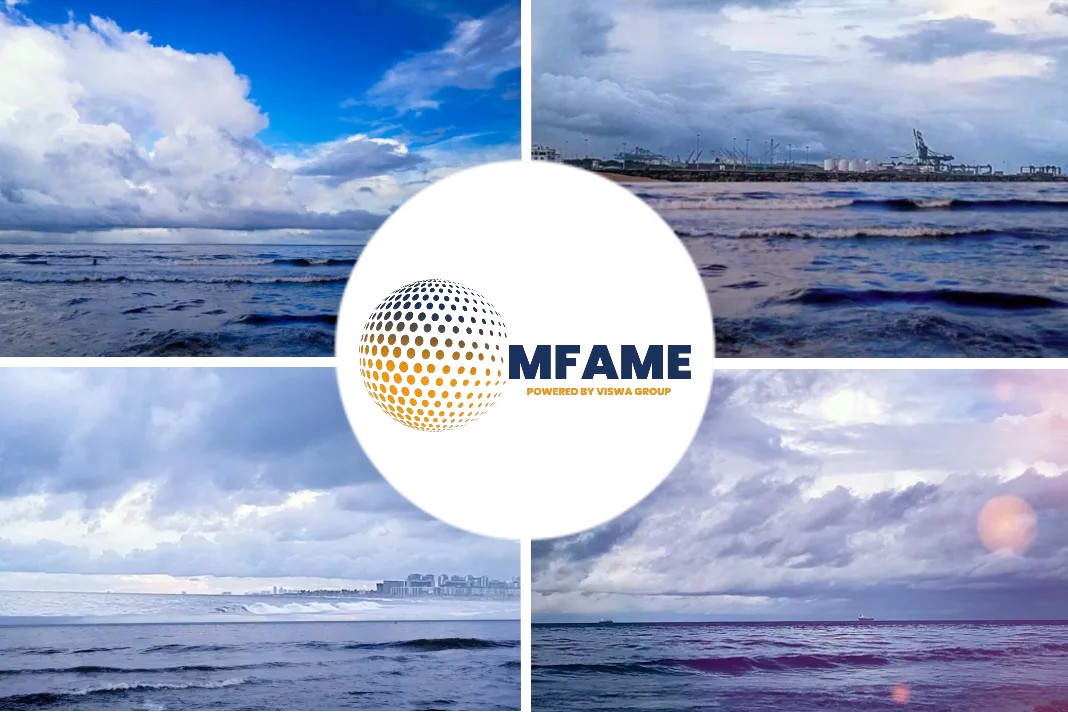 Helicopters hover above a patrol vessel in Nigeria’s frenetic Apapa port as attack boats zoom past. On the dock, drones emblazoned with the Nigerian flag sit ready to deploy – all part of a $195 million U.S.-backed “Deep Blue” initiative to deter pirate attacks in the world’s most dangerous area for seafarers, says an article published on Reuters website.
Helicopters hover above a patrol vessel in Nigeria’s frenetic Apapa port as attack boats zoom past. On the dock, drones emblazoned with the Nigerian flag sit ready to deploy – all part of a $195 million U.S.-backed “Deep Blue” initiative to deter pirate attacks in the world’s most dangerous area for seafarers, says an article published on Reuters website.
Threat to ship
The more than 2.35 million square kilometre (910,000 million square mile) expanse of the Atlantic Ocean that borders some 20 West African nations is known as “pirate alley”, where nearly all the world’s kidnappings at sea now take place since the water off Somalia in East Africa has become more secure.
Bashir Jamoh, head of the Nigerian Maritime Administration and Safety Agency (NIMASA), said “Deep Blue” had stemmed recorded kidnappings in the second quarter, after a record 130 sailors last year, compared with five in the rest of the world.
But there have already been 50 kidnappings logged this year and the U.S. navy is helping with training and European navies are assisting in patrols, a mark of their concern for a region that is a key global supplier of crude oil.
Nigeria is going to take the lead
Unlike in Somalia, which had no navy and limited government capability and thus allowed foreign navies to fire on ships and arrest pirates, only Nigerian security forces are allowed to be armed in the country’s large territorial waters.
Lurking beneath the government’s new show of maritime strength is poverty in the Niger Delta, where nearly all West Africa’s pirates originate.
Pollution in the region where international and local firms churn out Nigeria’s oil means people cannot farm or fish and 70% of its roughly 30 million people earn less than $1 per day, according to the United Nations, making piracy attractive.
“The issues that caused this in the Niger Delta have not been addressed,” said Max Williams, chief operating officer at security firm Africa Risk Compliance. “They still have the weapons, they have the boats, they have the fuel to kidnap people from these vessels.”
The Nigerian navy said this year it would strengthen measures to root out and punish security personnel who collude with kidnappers and criminals.
Pirates attack
Kidnappings for ransom accounted for only 15% of attacks in 2009, according to UNDOC; by 2020, these made up nearly all attacks as ransoms became more lucrative than any cargo.
The cost of freeing a group of hostages roughly doubled to up to $300,000 from 2016 to 2020, according to UNDOC, which estimated that Niger Delta-based pirates netted $4 million in ransom payments last year.
The sum pales compared with Somali pirates’ more than 1,000 captives in 2010, but Nigeria’s vice president put the economic cost in the billions, stifling much-needed development in a region disproportionately dependent on seaborne imports.
Jakob P. Larsen, head of maritime and cyber security at shipowner association BIMCO, said many ship owners simply refuse to ply the waters, pushing up costs, while crew also refuse to sail in the region – and can demand double pay if they do.
Pirates typically take kidnapped sailors to the Delta’s swampy, snaking creeks, where they face malaria, typhoid and attacks from rival bands of kidnappers. Nationwide, kidnappings have spiked over the past year as the economy faltered. read more
In January, a seafarer from Azerbaijan died during a kidnapping, and two others of unspecified nationality died of sickness during abduction in 2020.
Summary
- Helicopters hover above a patrol vessel in Nigeria’s frenetic Apapa port as attack boats zoom past. On the dock, drones emblazoned with the Nigerian flag sit ready to deploy.
- The more than 2.35 million square kilometre (910,000 million square mile) expanse of the Atlantic Ocean that borders some 20 West African nations is known as “pirate alley”.
- Kidnappings for ransom accounted for only 15% of attacks in 2009, according to UNDOC; by 2020.
- Pirates typically take kidnapped sailors to the Delta’s swampy, snaking creeks, where they face malaria, typhoid and attacks from rival bands of kidnappers.
Did you subscribe to our daily newsletter?
It’s Free! Click here to Subscribe!
Source: Reuters















